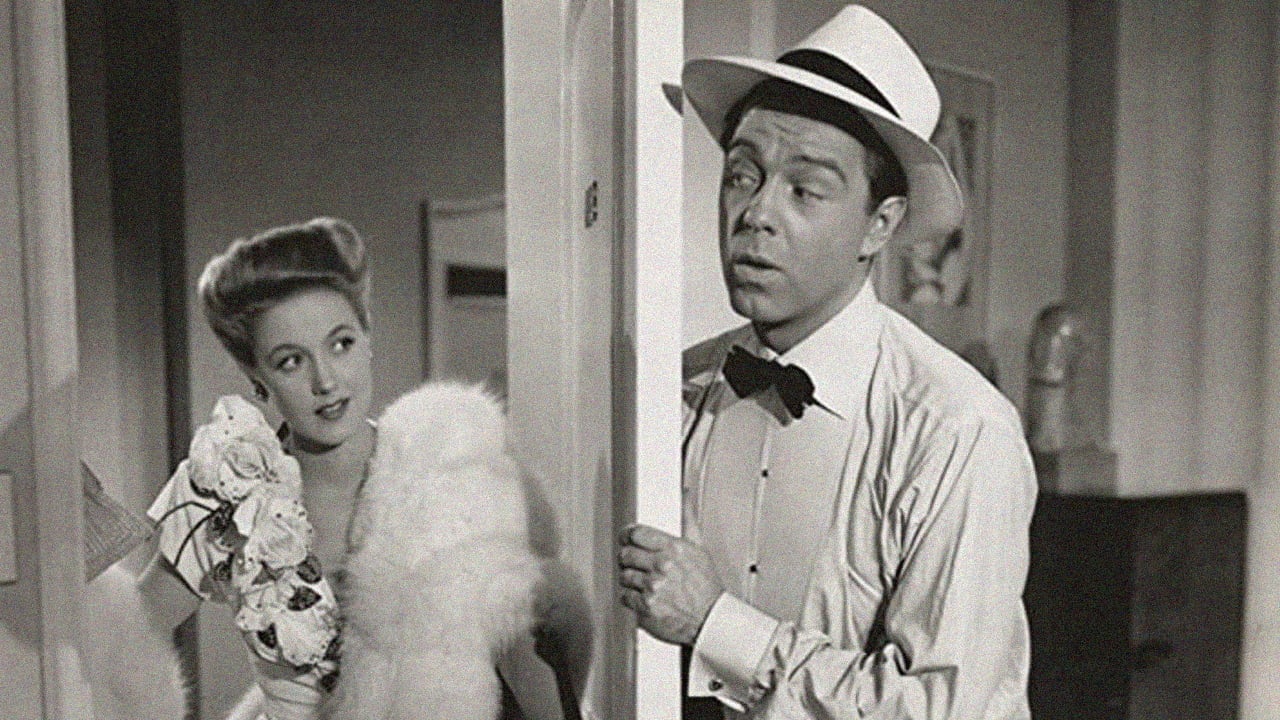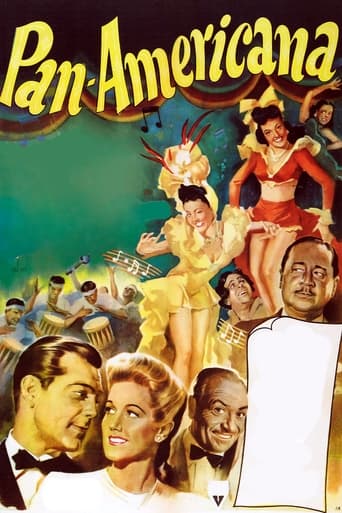

The song Babalu was published in 1939 and the Broadway show was in 1940. Desi Arnez had a big name in the U.S. already and I don't think anyone else was up for the role. The movie was just a propaganda Latin American goodwill film one of many. RKO did not put any of there big stars because it was not a big film. The love stories in musicals was a normal type of story. The film is likable and I would watch it again. The stars don't seem to have the chemistry as love interest. It is interesting that all studios were making films that take place south of the American border but were filmed in there Hollywood studios except for a couple of examples.
... View MoreAs a music presenter and a Latin-music radio host of 20 years, I was compelled to correct a couple of misstatements in previous postings about the musical artists featured in this film. While "Pan-Americana" is not exactly "An American in Paris" (...or even Manhattan), viewers should be more cognizant of what they're actually seeing and hearing.In the post titled "Just Doesn't Cut It", the writer commented: "The contrived plot is a boy-meets-girl story, interrupted by musical performances of Latin American artists, some of which were Carmen Miranda wannabees, and none of which were memorable or even particularly good." Um... amazingly inaccurate! If only for his presence alone, Miguelito Valdes is one of the LEGENDARY vocalists and band leaders of the Latin-American popular/tropical music genre. You could think of him as a combination of two notable U.S. artists: r&b legend Jackie Wilson (from a stylistic standpoint), and crooner Tony Bennett (as far as his 'stature' within the Latin pop music genre). So... to It was actually Mr. Valdes who popularized the song "Babalu" throughout Latin-America and the U.S. in the late 1930's. Likely because of Mr. Valdes obvious African blood, he was denied the opportunity to perform it in the Broadway show "Too Many Girls." The role ultimately was given to white-Cuban actor Desi Arnaz, a more 'traditionally handsome' man (to 1940's North American eyes) who parlayed the Broadway success into an MGM contract. While Desi Arnaz was himself a charismatic performer (a decent actor and visionary television producer), he had nowhere near the vocal presence of Miguelito Valdes (Arnaz himself would have laughed at the mere notion of a comparison...).Sprinkled throughout the film are also rare appearances by folks like the legendary Brazilian composer and band leader Nestor Amaral - the musician who accompanied Carmen Miranda to the U.S. in 1940(!). Antonio and Rosario performed to great acclaim internationally, and performed in a number of Hollywood musicals. After their breakup, their careers continued with success. Antonio would eventually become the Director of the Nacional Ballet de Espana! Chuy Reyes, who led the 'house' Latin band at Hollywood's glamorous Mocambo for years.The point is, while they may not be major "cross-over" names like Xavier Cugat, this film is an important document of some very influential Hispanic performers. To 'dismiss' them as cut-rate is simply wrong.
... View MoreI would have to wholeheartedly agree with the previous writer. This movie is a refreshing musical from the 40's - even Robert Benchley, one of my least favorite actors, subdues his normal corny performance here. There is a nice cast of Latin American singers and dancers included. Eve Arden is excellent in her role. Phillip Terry brings in a creditable performance playing his part well, and Audrey Long is absolutely outstanding (and gorgeous) as usual.Again, a very well directed and acted 40's musical! Must be - I have it on DVD and play it a least once a month. In summary, if you get a chance to catch this movie on one of the movie channels do so, you won't regret it.
... View MorePerhaps this film was an attempt to hitch onto the Pan-American goodwill efforts of the 1940s. The contrived plot is a boy-meets-girl story, interrupted by musical performances of Latin American artists, some of which were Carmen Miranda wannabees, and none of which were memorable or even particularly good.Leading man, Phillip Terry, just doesn't seem to have much screen charisma. Supporting cast members, Robert Benchley and Eve Arden, play the same characters that they did in countless other movies, so even their presence doesn't help this film. But don't blame the actors for what amounts to a bad script.If there had been a notable musical performance, or some clever comedy in this movie, there might be a reason to watch itbut there isn't. What's worse is that the print recently broadcast by Turner Classic Movies wasn't in very good condition.
... View More